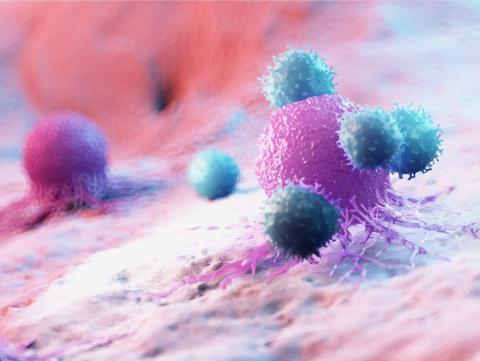Scientific publication: Characterization of a novel OX40 ligand and CD40 ligand-expressing oncolytic adenovirus used in PeptiCRAd cancer vaccine platform

ValoTx is pleased to share a new publication in Molecular Therapy Oncolytics (2021 in press) from IVTLab and Valo Therapeutics on PeptiCRAd technology and our proprietary oncolytic adenovirus platform.
A link to the paper can be found here
Abstract
Oncolytic viruses (OVs) have been shown to induce anti-cancer immunity and enhance cancer immunotherapies, such as immune checkpoint inhibitor therapies. OV therapies can be further improved by arming OVs with immunostimulatory molecules including various cytokines or chemokines. Here, we have developed a novel adenovirus encoding two immunostimulatory molecules; CD40 ligand (CD40L) and OX40 ligand (OX40L). This novel virus, designated VALO-D102, is designed to activate both innate and the adaptive immune responses against tumours. CD40L affects the innate side by licensing antigen presenting cells to drive CD8+ T cell responses, and OX40L increases clonal expansion and survival of CD8+ T cells and formation of a larger pool of memory T cells. VALO-D102 and its murine surrogate VALO-mD901 expressing murine OX40L and CD40L were used in our previously developed PeptiCRAd cancer vaccine platform. Intratumoural administration of PeptiCRAd significantly increased tumour-specific T cell responses, reduced tumour growth and induced systemic anti-cancer immunity in two mouse models of melanoma. In addition, PeptiCRAd therapy in combination with anti-PD-1 immune checkpoint inhibitor therapy significantly improved tumour growth control as compared to either monotherapy alone.

